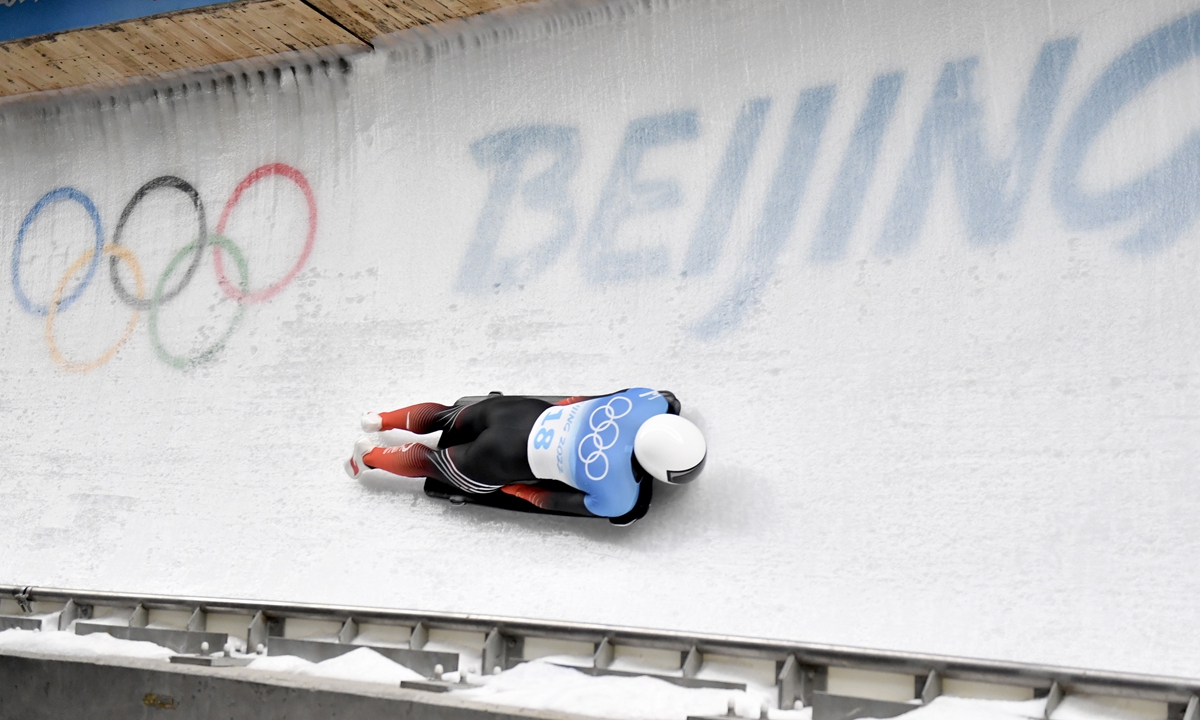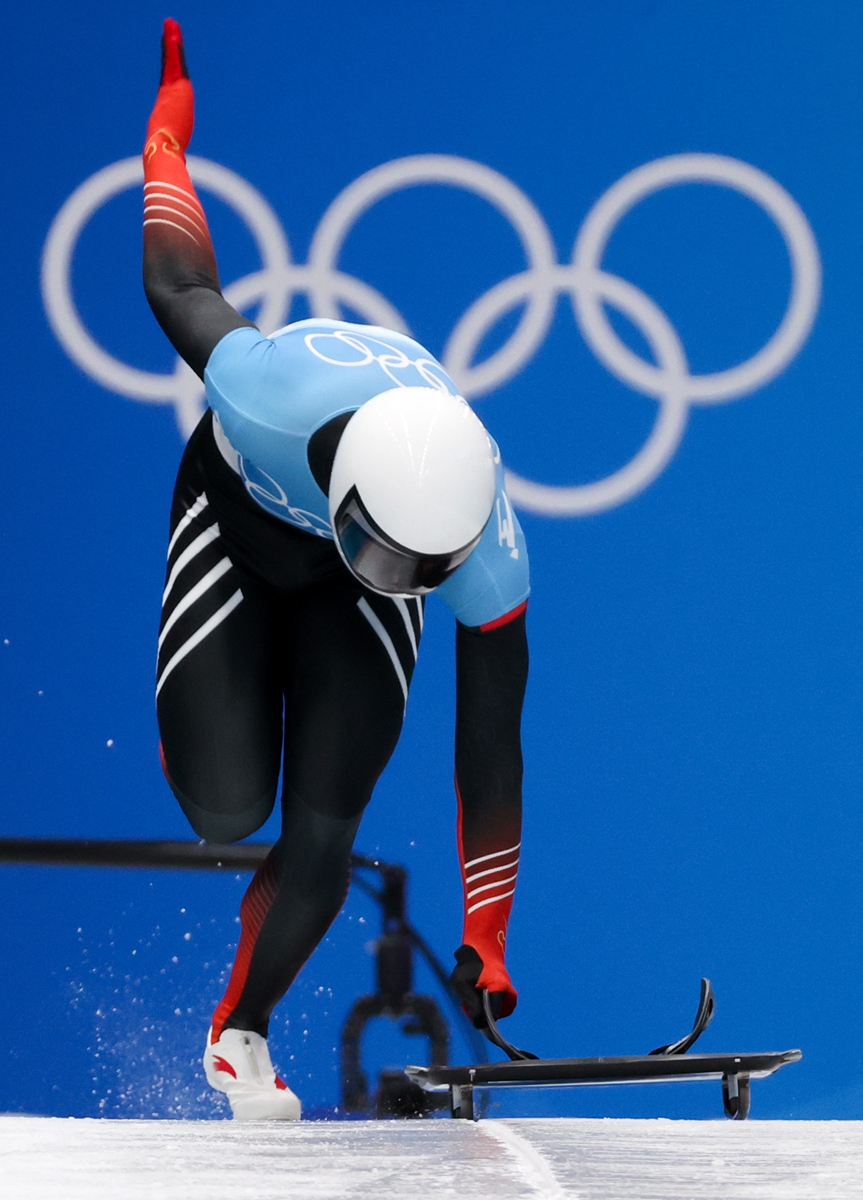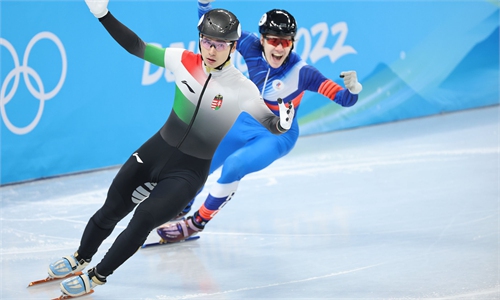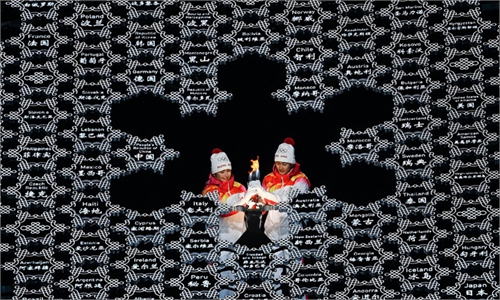SPORT / OLYMPICS
National skeleton team explores more adventures after first win

Chinese skeleton athlete Yan Wengang competes in the men's skeleton competition at the Beijing Winter Olympic Games on February 11, 2022. Photo: VCG
Around 74 kilometers away from downtown Beijing is the Yanqing National Sliding Center, home to the Olympic bobsleigh, luge and skeleton events, where the Global Times conducted an interview with China's national skeleton team on a freezing snowy Sunday.
The team had bagged a bronze on Friday, the first medal for China in a sliding sport.
The interview began at nine sharp in the morning, where six of the team, including leader Sun Fan, medal winner Yan Wengang, and Austrian chief coach Andreas Schmid shared their competing experiences and feelings toward Beijing 2022.
"I know the skeleton seems like it's simple to handle. Yet just like the F1 races, it's a huge test for competitors to always choose the right line in each run," Sun said.
Starting from scratch
Skeleton has a long history as an Olympic sport. It was first contested at the 1928 St. Moritz Winter Olympics in Switzerland and again in 1948. It was added permanently to the Olympic program for the 2002 Winter Olympics, at which stage a women's race was added. China, however, is still in the early stages of developing the sport as the country's skeleton team was not established until 2015, and they only participated in their first Olympic event in Pyeongchang 2018.
At Pyeongchang 2018, skeleton athlete Geng Wenqiang finished 13th. Three years later, Geng was able to grab China's first-ever World Cup skeleton win with a time of one minute, 46.04 seconds at the International Bobsleigh Skeleton Federation (IBSF) World Cup in Igls, Austria.
The IBSF World Cup also witnessed a three-way tie in the tournament's 45-year history where Matt Weston from Team Great Britain and Christopher Grotheer from Germany scored the exact same result as Geng.
On Friday, Chinese skeleton athlete Yan Wengang rushed down the ice-slide that resembles a flying dragon, finishing with a podium place and a bronze medal in the adrenaline-pumping sliding sport with a total time of 4:01.77 after the fourth run, following Christopher Grotheer (4:01.01) and Axel Jungk's 4:01.67, both from Germany.
Speaking of the stunning performance, Yan told the Global Times in a previous interview on Friday that he was full of confidence and showed his best in this competition.
"I feel like I'm happy but unhappy at the same time," Yan changed his tune in Sunday's interview toward his historical win. "I made several mistakes during the competition. I'm happy that I still got a bronze, but still, I think I could have done better."
"We are still a young team and lack competition experience. There is room for us to improve and we're getting stronger," Yan said.
An adventurers' game
By combining gravity, aerodynamics, kinetic energy, and athletes' skills, riders can reach an adrenaline-rushing speed of over 132 kilometers an hour. "People get scared when they start training because they think it's dangerous. But after several sessions, that sense of fear will disappear as long as they acquire enough skills," Yan said.

Chinese skeleton athlete Yan Wengang competes in the men's skeleton competition at the Beijing Winter Olympic Games on February 11, 2022. Photo: VCG
Another eye-catching athlete was Zhao Dan. Zhao finished in ninth place at the women's skeleton final on Saturday, wrapping up her first Olympics.Twenty-year-old Zhao was one of the national flag bearers at the February 4 opening ceremony of Beijing 2022, and she is also the youngest member of the national team. Zhao said she has "no regrets" about the result after showing "her true self" during the competition.
Zhao wants to encourage more young people like her to join China's sliding program. Before switching to the skeleton, Zhao was a track and field athlete and transitioned into the national skeleton team. "I overcame the fear under the help of the coach and finally fell in love with this 'adventurers' game,'" she said.
"I'm already very happy to represent Team China at the Winter Games. And for my family, they were worried and thought I've already showed my best just to finish the whole competition," joked Zhao, "but overall I feel confident for my future."



